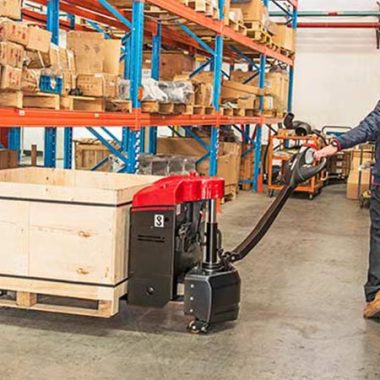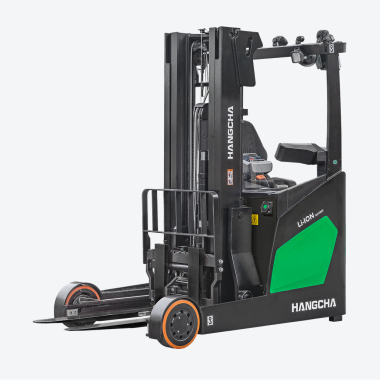Choosing a pallet truck might seem straightforward—but with so many models out there, selecting the wrong one can slow down operations, cause safety issues, and create long-term maintenance headaches. Whether you’re managing a large warehouse or a small retail store, your pallet truck should match your work environment and daily load demands.

Understand Your Daily Workload
Before investing in a new pallet truck, it’s important to consider your daily requirements.
· Manual or Electric?
Manual pallet jacks work fine for low-volume operations or short distances. But if your team is constantly moving goods across long stretches or uploading ramps, an electric pallet truck will be much more efficient and safer for your staff.
· Load Capacity
Always check the rated load. If you’re regularly moving pallets over 1.5 tonnes, a basic model might wear out quickly or even pose a safety hazard. Choose a model with buffer capacity to handle peak loads without stress.
If your business operates long shifts or high-frequency logistics, you might want to explore lithium battery pallet trucks for maximum uptime and performance.
Match the Truck to Your Industry
Each industry places unique demands on material handling equipment. Consider the following:
- Warehousing and Logistics: Choose models that allow tight turning and precise control, especially in high-density racking systems or narrow aisles.
- Food, Beverage, and Pharma: These sectors often require corrosion-resistant materials, sealed components, and easy-to-clean designs. Look for trucks that meet hygiene standards and avoid grease-prone systems.
- Retail, Small Business, and Light Industry: In smaller shops or confined spaces, compact pallet trucks with short forks and high motility make a big difference. Consider low-profile designs if you handle special-sized pallets.
Common Buying Mistakes to Avoid
Selecting based on price alone is one of the most common pitfalls. Other mistakes include:
· Overlooking Ergonomics
A pallet truck that’s hard to push, control, or lift becomes a long-term productivity issue and increases the risk of workplace injury.
· Choosing the Wrong Battery Type
Lead-acid batteries can be cost-effective upfront but require more maintenance and longer charging time. Lithium options cost more initially but provide better lifespan and energy efficiency.
· Ignoring Surface Type
If your floors are rough, outdoor, or uneven, you’ll need larger wheels and reinforced forks. Indoor concrete floors allow more flexibility, but flooring still matters.
Maintenance and Long-Term Use
Long-term efficiency depends on how easy your pallet truck is to maintain.
Spare Parts Availability: Can you quickly get new wheels, seals, or hydraulic pumps? Choose brands that offer local support or service partners.
Battery and Charger Life: How long does the battery last, and how fast does it charge? Lithium batteries typically win in this category, especially for busy logistics centers.
Hangcha offers strong after-sales support across Australia, and their trucks are engineered for simple upkeep with minimal downtime.

Selection Checklist
- Use this checklist when evaluating options:
- Load capacity matches your heaviest use case
- Size and turning radius suit your warehouse layout
- Battery type aligns with work hours and charging cycles
- The model is designed for your specific work environment
- Local service and spare parts are available
Final Thoughts and Next Steps
Finding the right pallet truck means thinking beyond the specs. It’s about supporting your workflow, boosting staff productivity, and reducing long-term costs.
Not sure which model suits your setup? Reach out to the team at Hangcha Australia. We’ll help you find a pallet truck solution that keeps your operation moving smoothly and efficiently.

























